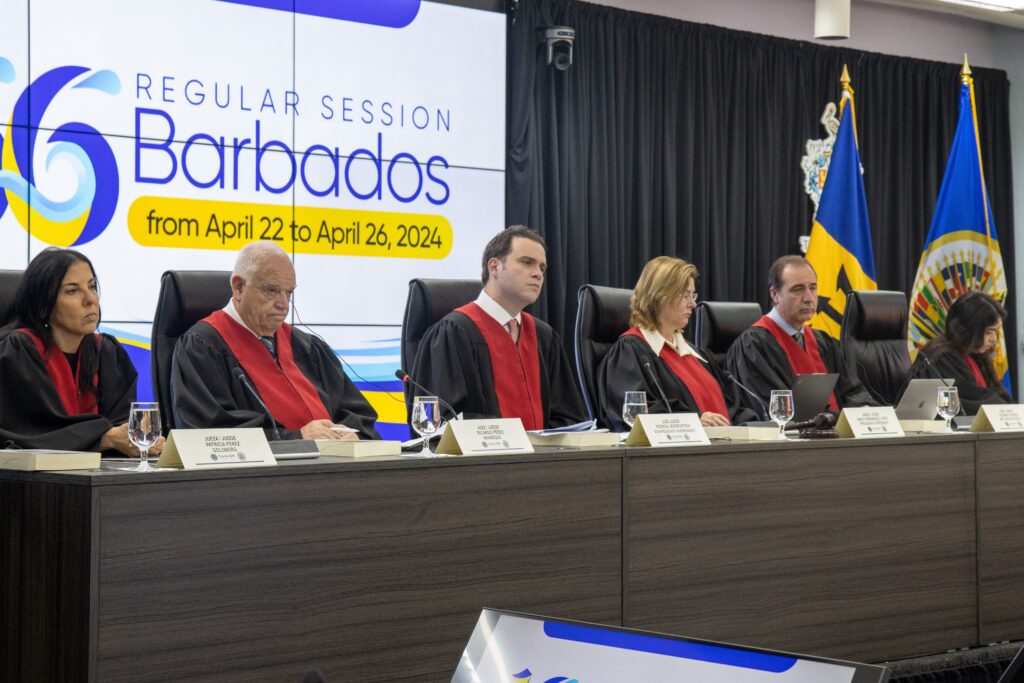For the past several years, the shale gas industry has argued that oversight of fracking is getting tighter and that the amount of methane gas leaking from their wells is less than some have speculated.
In Pennsylvania, however, the opposite is true, according to a white paper delivered to New York state regulators by Cornell engineering professor, Anthony Ingraffea. Inspection data from the state indicate that over 150 Marcellus shale wells in Pennsylvania had severe flaws that have led to sometimes large leaks and yet the operators of those wells were never issued violations by regulators for these breaches of state law.
By failing to cite drillers when things go wrong, Pennsylvania environmental regulators have for the past three years obscured the rate at which Marcellus wells leak, creating a falsely optimistic picture. Leaks at dozens of wells were described by state inspectors in their report notes, but violations were never issued.
If analysts relied on data about violations alone, it would seem that 6.2 percent of wells drilled in 2010 failed. In fact, the rate was 6.9%, according to notes in inspection reports, leaving a difference of 0.7%. By 2011,a full 1 percent of well failures were going uncited. For the first half of 2012, the DEP’s violation data showed a 7.2% rate of well failures, while a review of inspection reports shows an 8.9% failure rate for the full year. Put another way, Pennsylvania officials discovered that 76 Marcellus wells drilled in 2012 lost integrity but never cited drillers for these problems.
Why do these numbers matter?
Roughly 100,000 new shale gas wells are expected to be drilled in Pennsylvania over the next decades, with twice that many across the entire Marcellus region – so these small percentages add up to a lot of escaping gas.
This puts water at risk. When gas wells have faulty casings or cement, they can contaminate drinking water supplies, both above ground and below, as contaminants seep from around the well bore into surrounding aquifers or at times escape into rivers, lakes and streams.
The leak rate is also important because natural gas is so often portrayed as cleaner than coal with regards to climate change. Natural gas does have far lower carbon dioxide emissions when burned, compared to coal. But when natural gas — also known as the greenhouse gas methane – is allowed to leak into the atmosphere unburned it has climate changing impacts that, depending on time frame, are 30 to 100 times more destructive than those from carbon dioxide.
While we know that the leaks from compressor stations, storage facilities and from pipelines carrying natural gas from wells to our homes and power plants are hugely consequential, no one has studied whether leaks from gas wells themselves allow enough methane to escape to have meaningful climate change repercussions. Because of known gas leaks, there is already a lively argument over natural gas’s climate change impacts, especially compared to the impacts of other fossil fuels. These additional leaks from the wells themselves urgently need more study if those arguments are to be resolved in an informed way.
The full inspection reports reveal that roughly nine percent of Pennsylvania’s newest shale gas wells are already leaking. Experts say this rate is expected to get worse with time since the wells are newly drilled. As wells age, their casings corrode and cement linings will shrink, crack, and debond, causing even more methane to be released. Two large industry studies have reported that, over 30 years, and depending on the age of a well, 2 to 60 percent of oil and gas wells fail.
Not only are more shale gas wells leaking than previously believed, but the new data reveal a striking trend. Inspectors repeatedly found problems at Marcellus wells, and described the problems in their notes, but drillers were never cited for those violations. Since 2010, the PA DEP has grown increasingly unlikely to cite or penalize drillers when wells’ protective casings and cement break down. In some cases, no violations were recorded by the DEP even in cases when residents’ drinking water became contaminated and lawsuits followed.
To understand how these leaks impact real people, one need only talk to folks in Bradford County.
In February 2010, a resident of Towanda Township complained to Chesapeake Energy that his well water had turned black and undrinkable, legal documents show. Shortly after, two nearby ponds began to bubble, as did the Susquehanna River as it passed through Bradford County, PA. The bubbles were found to be methane gas that matched the gas produced by Chesapeake’s nearby wells.
Before the year was out, over a dozen households in Bradford County had their drinking water supplies tainted by gas from Chesapeake gas wells whose casings or cement jobs had failed. The DEP ordered Chesapeake to fix their gas wells’ problems and in some cases, the company paid for water deliveries or a replacement water well. A consent order from the case’s settlement specifically describes notices of violations issued by the DEP to Chesapeake over the failed gas wells. The company attempted, at times unsuccessfully, to repair the methane leaks. But no violations for these events appear in the state’s data on well failure rates.
Clearly, the amount of gas that leaks from these wells is only part of the story in Pennsylvania. The rest of the story has to do with how state regulators handle problems when they arise.
For that, it is worth looking to a report issued recently by the Public Accountability Initiative, which offers new insight into the politics of drilling oversight in Pennsylvania. The report describes in stark detail the coziness between the drilling industry and the people in Pennsylvania who are supposed to police it.
A revolving door between the natural gas industry and environmental spins quickly in the state. One person featured in the report is John Hanger, who directed the Department of Environmental Protection under a Democratic administration when the Marcellus boom first took hold in Pennsylvania. He was tasked with policing the industry, but under his watch the state was opened in new ways to drillers and major environmental problems emerged. Mr. Hanger is now special counsel to a law firm that represents every segment of the fossil fuel industry, including the state’s oil and gas industry association, and is also running for governor.
These patterns have continued under the current Republican administration. Current DEP head Michael Krancer is former general counsel at a utility that relies on natural gas and a former partner at a law firm member of the Marcellus Shale Coalition, an industry lobby group.
“Twenty Department of Environmental Protection employees have held jobs in the energy industry either before or after their agency jobs,” the Public Accountability Initiative reported. “Every Secretary of Environmental Protection since the DEP was created has had ties to the natural gas industry.” And all three of the state’s recent governors have industry ties.
When Mr. Krancer started his tenure as the director of the Pennsylvania DEP in 2011, he immediately found himself immersed in scandal after a leaked memo revealed that he was requiring all violations to be approved by DEP headquarters instead of directly issued by field staff, as had been the norm previously. After the memo was publicized, Krancer recinded the policy. But the data indicates that enforcement may have been chilled as inspectors became less likely to issue violations for known problems under Krancer’s watch.
The Public Accountability Initiative report also offers new information about the Krancer scandal. One high level DEP staffer, John T. Hines, left the DEP in February 2012 for a job with Shell Oil Company. Mr. Hines, it turns out, was the author of the memo that required inspectors to clear any notices of violation they intended to issue with himself or another top DEP employee in Harrisburg.
Pennsylvania regulators have offered their state as a model for the rest of the country to follow, claiming that drilling is closely monitored.
“No other state has added more staff, done a more comprehensive strengthening of its rules or more aggressively enforced its rules than Pennsylvania has,” reads a fact-sheet created by the DEP in 2011.
Shale industry officials have echoed this point.
“Pennsylvania has some of the strictest regulations in the country, further enhanced with the passing of Act 13, and a long history of regulating oil and gas,” Energy in Depth Marcellus bloggers wrote last April.
Not everyone is convinced.
Pennsylvania’s drilling boom is often cited as a textbook example of how not to handle drilling. Officials from states like Maryland and New York have pointed to pollution and other issues that fracking caused in Pennsylvania as they consider holding off on shale gas extraction in their states. Robert F. Kennedy, Jr. recently told the Associated Press that he had convinced New York Governor Andrew Cuomo to keep New York’s moratorium on shale extraction in effect until results come in from a study of fracking’s health impacts in Pennsylvania.
The Pennsylvania auditor general is currently investigating Mr. Krancer’s oversight of the shale gas industry. And at a state budget hearing on Friday, lawmakers grilled Mr. Krancer about his agency’s record. One lawmaker pointed out that nine of every 10 Marcellus Shale violations in 2011 resulted in no fines.
Mr. Krancer, however, argued that there is a logic to not penalizing drillers when they break the law.
“The idea of an issuance of a notice of violation is not to issue a fine,” said Mr. Krancer during the hearing. “The idea is to bring conduct which is potentially volatile to the attention of the operator so the operator can do something about it.”
So how is that theory working out?
Virtually all evidence coming from the state seems to show that this type of oversight works better for drillers than residents of the state. The data shows operators have failed to “do something about it.” Instead, the opposite is true. Drillers have grown more likely to make mistakes as time goes on and recently drilled wells have a worse track record than those drilled years ago. But when accidents happen, state regulators, it seems, have simply been turning a blind eye.
Image credit: Map of PA by iQoncept | Shutterstock
Subscribe to our newsletter
Stay up to date with DeSmog news and alerts






